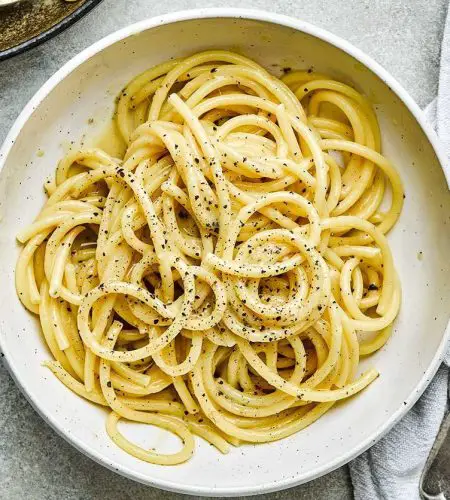Ah, the age-old question: what makes the perfect Neapolitan pizza? Some say it’s all about the crust, while others argue that the sauce is the star of the show. But let’s not forget about everyone’s favorite fungi – yeast! Yes, the unsung hero of pizza making. So grab a slice, sit back, and let’s dive into the wild and whimsical world of selecting the ideal yeast for authentic Neapolitan pizza. Because when it comes to this cheesy, saucy masterpiece, every little microorganism counts!
Contents
Key Considerations for Choosing the Right Yeast
When it comes to choosing the right yeast for your brewing adventures, there are a few key factors to consider. Let’s dive into the world of tiny microorganisms and uncover the secrets to selecting the perfect yeast for your next batch of beer.
First and foremost, you’ll want to think about the flavor profile you’re aiming for. Different strains of yeast can impart unique flavors and characteristics to your brew. Do you want a fruity ester profile? Or perhaps a spicy phenolic kick? Consider how the yeast will complement the other ingredients in your recipe.
Next, take into account the fermentation temperature range of the yeast. Some strains thrive in cooler temperatures, while others prefer it hot and steamy. Make sure your yeast of choice can handle the conditions you’ll be brewing in.
Don’t forget about the attenuation rate of the yeast. Are you looking for a dry finish or a sweeter brew? Knowing how your yeast will munch on those sugars can make a big difference in the final product. And of course, always remember to sit back, relax, and enjoy the magical transformation that takes place when yeast meets wort. Cheers to the microscopic superheroes of the brewing world!

Understanding the Role of Yeast in Neapolitan Pizza Making
Have you ever bitten into a slice of perfectly crispy, chewy Neapolitan pizza and wondered what makes it so delicious? Well, the answer lies in the tiny microorganism known as yeast! Yes, that’s right – this microscopic creature plays a major role in the art of making Neapolitan pizza.
Yeast is like the fairy godmother of pizza dough, magically transforming simple ingredients like flour, water, salt, and olive oil into a light and airy crust that’s as delicious as it is iconic. Without yeast, pizza dough would just be a sad, flat disk – definitely not the stuff dreams are made of.
So, how does yeast work its magic? It’s all about fermentation, baby! When mixed with the other ingredients, yeast munches on sugars in the dough and releases carbon dioxide gas, which creates those coveted air bubbles that give Neapolitan pizza its signature fluffy texture. It’s like a party in your mouth, and yeast is the VIP guest.
Next time you sink your teeth into a slice of Neapolitan pizza, take a moment to thank the unsung hero that is yeast. Without this tiny but mighty microorganism, your favorite food would just be a sad, unleavened mess. So here’s to yeast – may it forever reign supreme in the world of pizza making!
Comparing Different Types of Yeast for Pizza Dough
When it comes to making the perfect pizza dough, selecting the right type of yeast can make all the difference! Let’s take a look at some of the most popular options and see how they stack up against each other.
**Active Dry Yeast:**
- Pros: Easy to find in most grocery stores, long shelf life.
- Cons: Requires proofing in warm water before using, can be finicky if water temperature is off.
**Instant Yeast:**
- Pros: No need to proof, can be added directly to dry ingredients.
- Cons: Slightly more expensive than active dry yeast, may not be as readily available.
**Fresh Yeast:**
- Pros: Known for producing a more flavorful dough.
- Cons: Shorter shelf life, can be harder to find.
**Overall, the best type of yeast for your pizza dough will depend on your personal preference and baking style. So go ahead, experiment with different types and see which one rises to the occasion!**

Tips for Achieving the Perfect Texture and Flavour with Yeast
When it comes to achieving the perfect texture and flavour with yeast, there are a few key tips that can make all the difference in your baking. Let’s face it, nobody wants a dense, flavorless loaf of bread or a flat, boring pizza crust. So, follow these tips to ensure your yeast-based creations turn out light, fluffy, and delicious!
Use fresh yeast: This may seem like an obvious tip, but it’s amazing how many people try to use old, expired yeast in their recipes. Fresh yeast is essential for getting that perfect texture and flavour, so be sure to check the expiration date before you start baking.
Knead, baby, knead: Kneading your dough is crucial for developing the gluten and creating a light, airy texture. Don’t skimp on this step – roll up your sleeves, get your hands dirty, and give that dough a good knead. Your arms might be sore, but your taste buds will thank you.
Let it rise: Patience is key when working with yeast. Give your dough plenty of time to rise and double in size before baking. This will ensure that your bread or pizza crust is light and fluffy, rather than dense and heavy. So, sit back, relax, and let the magic of yeast do its thing!

Factors that Affect the Performance of Yeast in Pizza Dough
When it comes to making the perfect pizza dough, ensuring that your yeast is performing at its best is crucial. There are several factors that can affect how well your yeast works its magic in the dough. Let’s dive into some of these factors:
- **Temperature:** Yeast is like Goldilocks – it needs the temperature to be just right. Too hot and the yeast will get too excited and burn out quickly. Too cold and it will hibernate like a grumpy bear.
- **Liquid Ratio:** Yeast loves to slurp up all the liquid it can get, but too much or too little can throw off its game. It’s like trying to do a math problem with the wrong variables.
Another important factor is **kneading**. Just like giving a massage to a grumpy cat, kneading the dough helps activate the yeast and distribute it evenly throughout. So roll up those sleeves and get ready for a doughy workout!
- **Time:** Patience is a virtue when it comes to yeast. Letting the dough rise for the right amount of time gives the yeast a chance to stretch its legs and do its thing.
Testing and Experimenting with Yeast to Improve Your Pizza Making Skills
So you want to up your pizza game, huh? Well, buckle up because we’re about to dive deep into the world of testing and experimenting with yeast to take your pizza making skills to the next level!
First things first – let’s talk about the different types of yeast you can use. From active dry yeast to instant yeast to fresh yeast, the options are endless. **Experiment with each type** to see which one gives your dough that perfect rise and flavor profile you’re looking for.
Pro tip: **play around with proofing times**. Letting your dough rise for longer periods can result in a chewier crust with more complex flavors. Don’t be afraid to let that dough sit and do its thing – good things come to those who wait!
And finally, don’t be afraid to get creative with your ingredients. **Try adding different herbs or spices to your dough** to give it that extra oomph. Test out different cheese blends or toppings to create your own signature pizza masterpiece.
FAQs
What exactly is the importance of yeast in Neapolitan pizza?
Yeast is the magic ingredient that helps create the fluffy and chewy texture of Neapolitan pizza crust. It is responsible for the rise and fermentation of the dough, giving it that authentic taste and texture.
What are the key characteristics to look for when selecting yeast for Neapolitan pizza?
When selecting yeast for Neapolitan pizza, you’ll want to look for a yeast strain that is specifically designed for pizza dough. This means it should provide a slow and steady fermentation process, as well as enhance the flavor of the dough.
How can one determine the freshness and quality of yeast for Neapolitan pizza?
Freshness is key when it comes to yeast for Neapolitan pizza. To determine the quality of yeast, look for a product that is within its expiration date, has a pleasant aroma, and is stored in a cool, dry place. A quick taste test can also help determine if the yeast is still active.
Are there different types of yeast that can be used for Neapolitan pizza?
Yes, there are different types of yeast that can be used for Neapolitan pizza, including fresh yeast, active dry yeast, and instant yeast. Each type has its own unique characteristics and can affect the flavor and texture of the pizza crust.
What are some common mistakes to avoid when selecting yeast for Neapolitan pizza?
One common mistake to avoid when selecting yeast for Neapolitan pizza is using the wrong type of yeast. Make sure to use a yeast strain that is specifically designed for pizza dough to achieve that authentic Neapolitan flavor. Additionally, be sure to check the expiration date and store the yeast properly to ensure freshness.
—
Ciao for Now!
So there you have it, fellow pizza connoisseurs! Finding the perfect yeast for your Neapolitan pizza may not be as easy as picking toppings, but it’s definitely worth the effort. With the right yeast, your pizza will rise to the occasion every time.
Whether you prefer fresh yeast for its flavor or dry yeast for its convenience, just remember to keep experimenting until you find the yeast that makes your pizza dreams come true. After all, a little trial and yeast-error never hurt anyone!
Now go forth and bake your way to pizza perfection. And remember, when in doubt, just keep calm and dough on!
Arrivederci!




